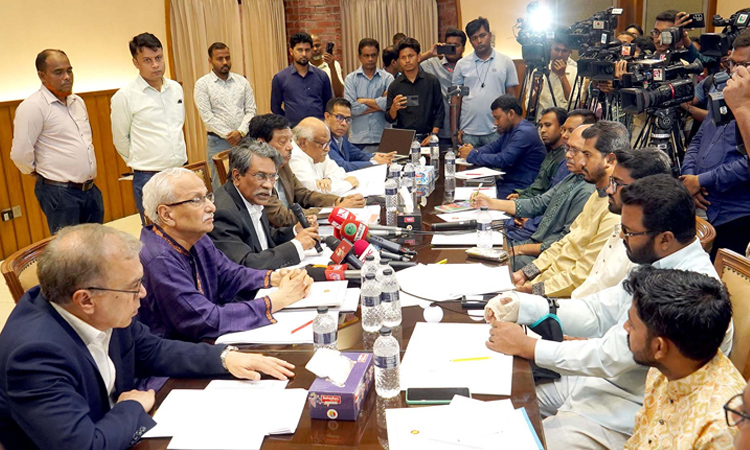News Flash

DHAKA, April 28, 2025 (BSS) - National Consensus Commission Vice-Chairman Professor Ali Riaz today said building a new Bangladesh will only be possible through the collective unity of the people, alongside the efforts of political and democratic forces.
“Reports, opinions, or recommendations from reform commissions alone are not sufficient; rather building a new Bangladesh will only be possible through the collective unity of the people, alongside the efforts of political and democratic forces,” he said.
Professor Ali Riaz made this the remark at the beginning of the discussion at the commission’s meeting with Gono Odhikar Parishad at the LD Hall of the Parliament Building here.
Commission members Dr. Iftekharuzzaman, Dr. Badiul Alam Majumder, Safar Raj Hossain, and Justice Md. Emdadul Haque and Special Assistant to the Chief Adviser Monir Haider were present.
Expressing optimism about establishing a democratic state through dialogue with political parties, Ali Riaz said, “The democratic aspirations of the people of Bangladesh that have been nurtured for the past 53 years now must be brought for implementation.”
He added, “We must pull forward this goal not merely through written words, but through genuine commitments and promises made to the people."
Ali Riaz said the goal of the National Consensus Commission is to create a national charter through which the power structure of the country can be changed and Bangladesh can move forward with all possibilities.
In the discussion, a 10-member delegation led by Gono Odhikar Parishad President Nurul Haque Nuru, included General Secretary Md. Rashed Khan, Senior Vice President Faruk Hasan, Abu Hanif, Habibur Rahman Riju, Advocate Khalid Hossain, Shakib Hossain, Shakil Uzzaman, Fatema Tuz Zohra Resa and Muntazul Islam.
The reform commissions formed in the first phase-the Constitutional Reform Commission, Public Administration Reform Commission, Electoral Reform Commission, Judiciary Reform Commission and Anti-Corruption Commission have placed their recommendations.
The important recommendations of them have been sent to 39 political parties in the form of spreadsheets requesting them to provide specific opinions on those.
So far, the National Consensus Commission has received opinions from 35 parties on the reform and the commission has so far held discussions with 20 political parties in this regard.